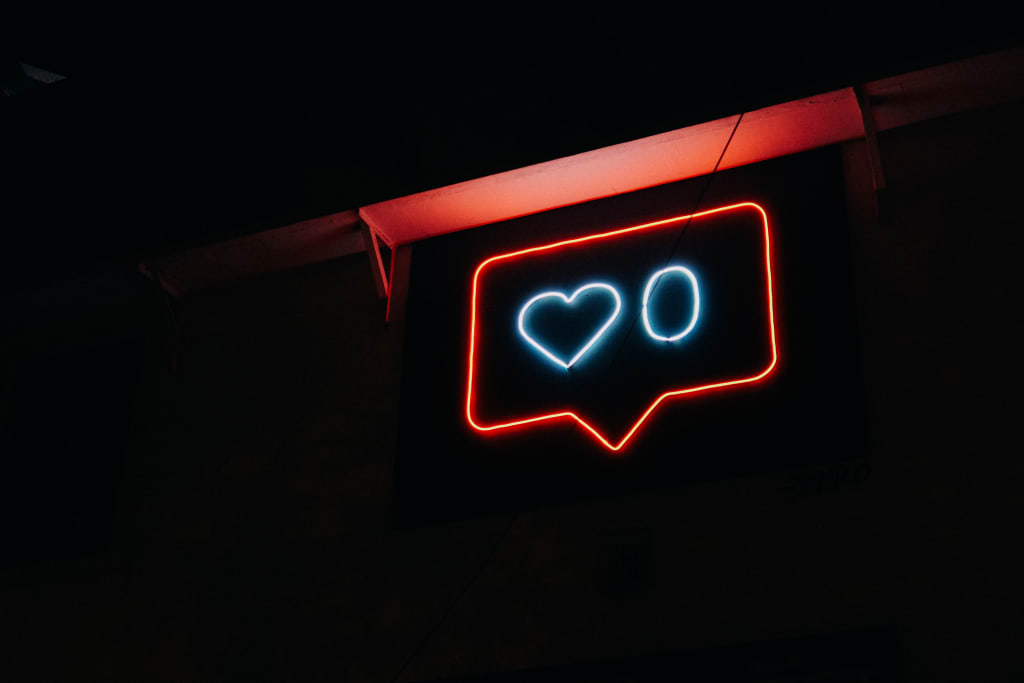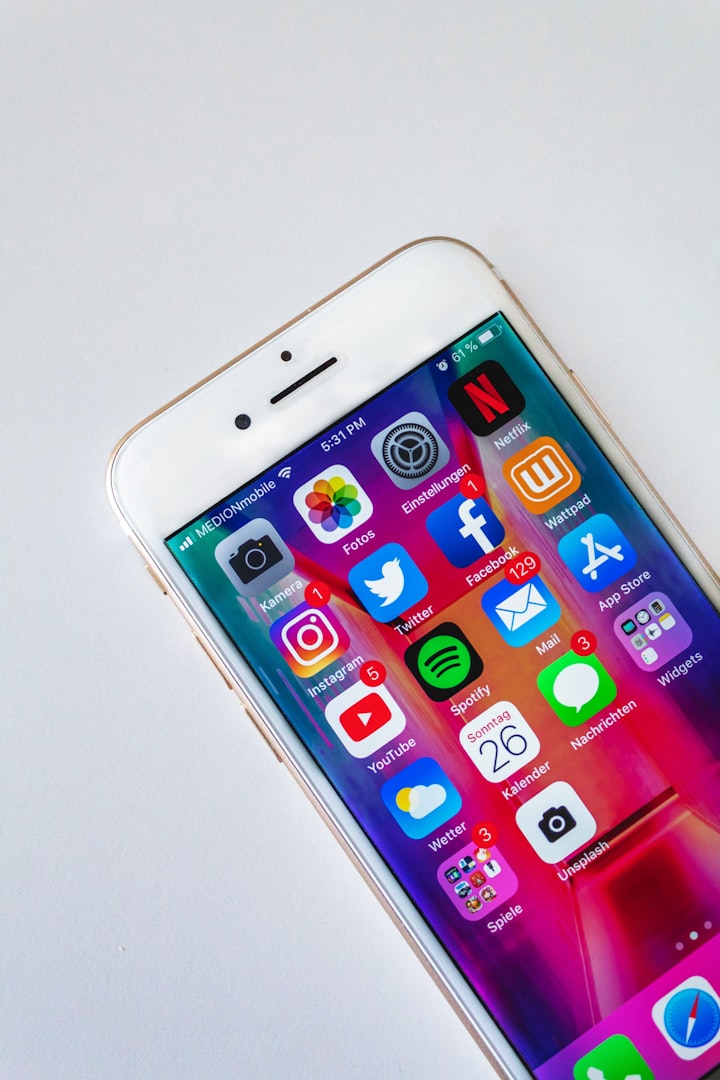Brainstorms III: Social Media and Mental Health
Can we turn social media from a mental health hazard to a mental health detector?

This post promises to be a complicated one. We will try to balance the pros and cons of social media, a controversial topic at the very least. However, social media plays such a big role in our lives today, that its effects on our mental (and physical) health should not be overlooked. But are there any effects, and if so are they good or bad? Answering these questions is not going to be easy since there's probably no clear effect. We are all different, and the effects social media has on us may vary depending on our personality and the time we spend on it. But, well, there's no shame in trying.
I always like to get the bad news first, so let's start with the downside of social media, which I'm sure we've all heard of before. Just to list a few negative aspects of these apps:
- We end up spending a lot of time on it when we could be doing other, more fulfilling things.
- There is a clear gap between social media friends and real friends.
- People might not be who they claim to be behind the screen. This can range from people shaping their life to look better than what it is, to building a false identity online.
- Our sleeping patterns change for the worse.
In fact, if you google "social media and mental health" the first entries are all about the negative effects of these platforms on mental health. Here are some examples as of October 2019:
Even so, most of us have a profile in at least one of the social media apps, which we generally check daily. Some even spend hours on end on them, flooding the Internet with their information: what they like, who they talk to, where they go.
Some people even develop an "addiction" to their phone. They have a constant need to check the screen and their messages. They even feel nervous or stressed when they are without their phone; they have grown dependent without knowing it, forcing themselves to be constantly available and continuously looking for likes and new followers. As Sherry Turkle says in her book "Alone Together", social media can obliterate alone time. People struggle to disconnect because our phones are on all the time and social media is active constantly. But to be comfortable with ourselves we need some degree of self-knowledge, and to gain it we need time alone and time to reflect. A sentence from this book that stuck with me was "loneliness is failed solitude". Used to the constant engagement in social media, we don't know how to be alone anymore. Being alone is associated with negative feelings and the belief that we are not valued, even if being alone at some point during the day is normal and even, I would dare to say, healthy.
Social media can also influence our self-image. We follow people that we consider inspiring, but that inspiration can morph into anxiety when we compare ourselves to others 24/7. Additionally, we usually post positive things on our accounts: we want everyone to think that we are accomplished and happy. However, that's not real life; we all go through hard times. If we judged our lives based off of our social media profiles, it might seem that we are constantly having fun, working productively in exciting new projects or at cool events and parties. We know this is not true about our own lives, but do we realize that the same standard applies to everyone else?
Unfortunately, social media has a stronger influence on our brains than just temporary feelings of sadness or happiness. Studies have shown that when you spend at least 3-4 h a day on social media you are at a higher risk to develop a mental health disorder. At night, it can be much harder to fall asleep if you use your phone right before going to bed. Sleep is essential to mental health and in fact, less sleep can also impact our physical health, as detailed in Dr David Puder's podcast.
As an overall summary on the effects of social media on mental health, most research papers indicate that social media is, at the very least, not positive to mental health. The ones that do report positive effects of social media are listed on Facebook's page and might have a conflict of interest.
However, not everything regarding social media and mental health is negative. For example, we can find our minority community on social media, something that is harder to do without the Internet. There is also evidence that following accounts with positive or happy content will make us more likely to post something positive too. On the other hand, the same thing can happen with posts containing negative content, which emphasizes the importance of following people that make you feel better about yourself. Additionally, although the excessive use of these platforms is still negatively associated with mental health, they can help us provide better assistance to those that will suffer from a mental health disorder.
Several studies have found that there are patterns in the posts shared on social media (Facebook and Twitter) that can predict, even sooner and with better accuracy than a clinician, if someone will develop depression or post-traumatic stress disorder (PTSD). For example, according to these papers, depressed patients posted less frequently than average users and used negative words associated with emotions (sadness) or interpersonal relationships (loneliness, hostility) more frequently. Tracking people's social media feeds could predict the diagnose for the mental health disorder with high accuracy 3 and even 6 months before the first diagnosis/hospital visit. It could also help patients that would never approach a clinician, plus it would be a very cheap way to diagnose patients.

However, we have to stop for a second and think about how we want to use our social media platforms. It would be great if we could provide help to people that are willing to expose themselves to the scrutiny of algorithms. But we also have to remember that social media owners are companies, and companies want to make profit, so where would they get their benefits for providing mental health assistance?
Additionally, to be able to diagnose a person, these companies would have to have access to the content of your feed, link it to you and then obtain the information about your health status according to their algorithm. I don't know about you, but with the pretty recent scandals about Facebook's data privacy breach, I don't think that I trust these companies to keep my health information confidential. What could happen if they did reveal information about my health status? Or if the company that is looking to hire me could compare my mental health status with other people also applying for the job?
Additionally, we should first answer the following question: is social media actually causing an increase in depression/anxiety rates? Because, if this increase is in fact due to an excessive use or the constant presence of social media, then should we be using this tool to diagnose the cases, or should we rethink the whole purpose of social media?
As I said at the beginning, the answer to the question "Is social media good or bad?" does not come easily. For now, it is up to us personally to assess if our use of social media is doing more harm than good, and act consequently. Be aware of your relationship with social media: do you spend more than 2 hours a day on your phone? Do you interact with other people easily when not on your phone? Do you take away attention from your face-to-face interactions because you are constantly checking your phone and answering messages? If the answers to these questions are yes, then change your patterns: don't let social media rule your life.
That's all from my side. Stay healthy :)
References:
- Burghart, V., Rudyk, J., Puder, D. Is social media good for mental health? Psychiatry & Psychotherapy Podcast (2019).
- Eichstaedt, J. C. et al. Facebook language predicts depression in medical records. Proc. Natl. Acad. Sci. 115, 11203–11208 (2018).
- Kramer, A. D. I., Guillory, J. E. & Hancock, J. T. Experimental evidence of massive-scale emotional contagion through social networks. Proc. Natl. Acad. Sci. 111, 8788 LP – 8790 (2014).
- Reece, A. G. et al. Forecasting the onset and course of mental illness with Twitter data. Sci. Rep. 7, (2017).
- Turkle, S. Alone Together. Why we expect more from technology and less from each other. (Basic Books, 2011).
About the Creator
Laura Sotillos Elliott
Future doctor. Interested in science communication in all its forms: writing, podcasting, organizing scientific events...
Follow me on twitter at @addict_science






Comments
There are no comments for this story
Be the first to respond and start the conversation.